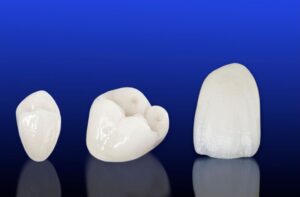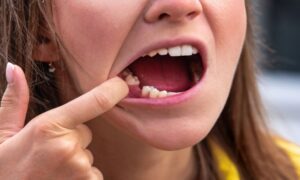Stop Thumb Sucking Before it Ruins Your Child’s Teeth!
Many young children resort to thumb-sucking or a pacifier for comfort. It is a natural reflex for babies and toddlers, helping them to feel comforted and secure. Usually they will start thumb-sucking when they are tired or fussy to help soothe themselves. Yet, many parents worry that this bad habit will have an adverse effect on their children’s teeth.
The truth is, yes, if thumb-sucking goes on too long, it could result in the improper growth and development of the permanent teeth. Luckily it is not a condition that happens overnight. Most parents have plenty of time to help their children stop thumb-sucking before it becomes a serious dental problem.
How Long Should Thumb-Sucking Usually Last?
In the first few months, a baby is likely to develop a sucking habit, and in these early stages, it is harmless. But how long is too long? Many children will end up kicking the habit on their own between the ages of 2 and 4. They will develop other ways to soothe themselves, and with a little encouragement or peer pressure, will usually quit all on their own. Often the attachment to this habit will transfer to something else, like a favorite stuffed animal or blanket. In most cases, thumb-sucking does not become a real dental concern until your child’s permanent teeth begin to grow. For most children, the habit is long gone by this time, but some kids have difficulty kicking the habit.
Under normal circumstances, the top teeth are meant to meet with the bottom teeth and stop moving. As you can imagine, with a persistent pacifier or thumb in the way, the movement of the permanent teeth becomes obstructed. So if permanent teeth begin growing, it is time to intervene.
Consider taking action if:
- Your child aggressively sucks their thumb after age 4 or 5
- Permanent teeth begin to grow in and the habit remains
- Dental problems start to occur, like front teeth being pushed out of place
- Your child becomes embarrassed about thumb-sucking
Experts suggest a number of tips to help parents wean their children of thumb- or finger-sucking. This type of action does not need to become a power struggle. Instead, use simpler methods to help your child figure out other ways to find comfort and security. Working with your child in these ways will help lessen their dependency on thumb-sucking and save their smile.
Five Tricks to Help Your Child Stop Thumb-Sucking
1. Identify Your Child’s Thumb-Sucking Triggers
The only way you can really help your child stop sucking their thumb is by knowing what causes it in the first place. By identifying and treating the underlying issue, you can help your child find other ways to cope. When a child is stressed or tired, try hugging or holding them instead of letting them go for the thumb.
2. Limit Thumb-Sucking
This is another good place to start breaking a thumb sucking habit. Teach your child it is something they can do in the house when it is time for bed or naps, but not something they should do in public. Cutting down time when the thumb is in the mouth is one step toward eliminating the habit.
3. Help Transfer Their Attachment to Something Else
When you notice your child becoming stressed or upset, offer him or her a pillow to hold or a stuffed animal to squeeze to help him or her cope. This paired with some reassuring words may be all your child requires instead of sucking their thumb.
4. Use Positive Reinforcement
When your child is not sucking their thumb, offer them praise or provide a small reward. Things like an extra bedtime story or a spontaneous trip to the park goes a long way. When their hands are busy, they won’t be able to suck on their fingers. Do not resort to using candy though because that is counterproductive when it comes to your child’s oral health.
5. Provide Gentle Reminders
When your child starts absent-mindedly sucking on their fingers or thumb, gently draw attention to the habit and remind them to stop. Talk about how they are growing up and thumb-sucking could ruin their teeth. Do not scold, embarrass or ridicule your child especially in front of others. Also, if your child is sucking their fingers as a way to get your attention, then you should flat out ignore the bad behavior and move on to something else.






